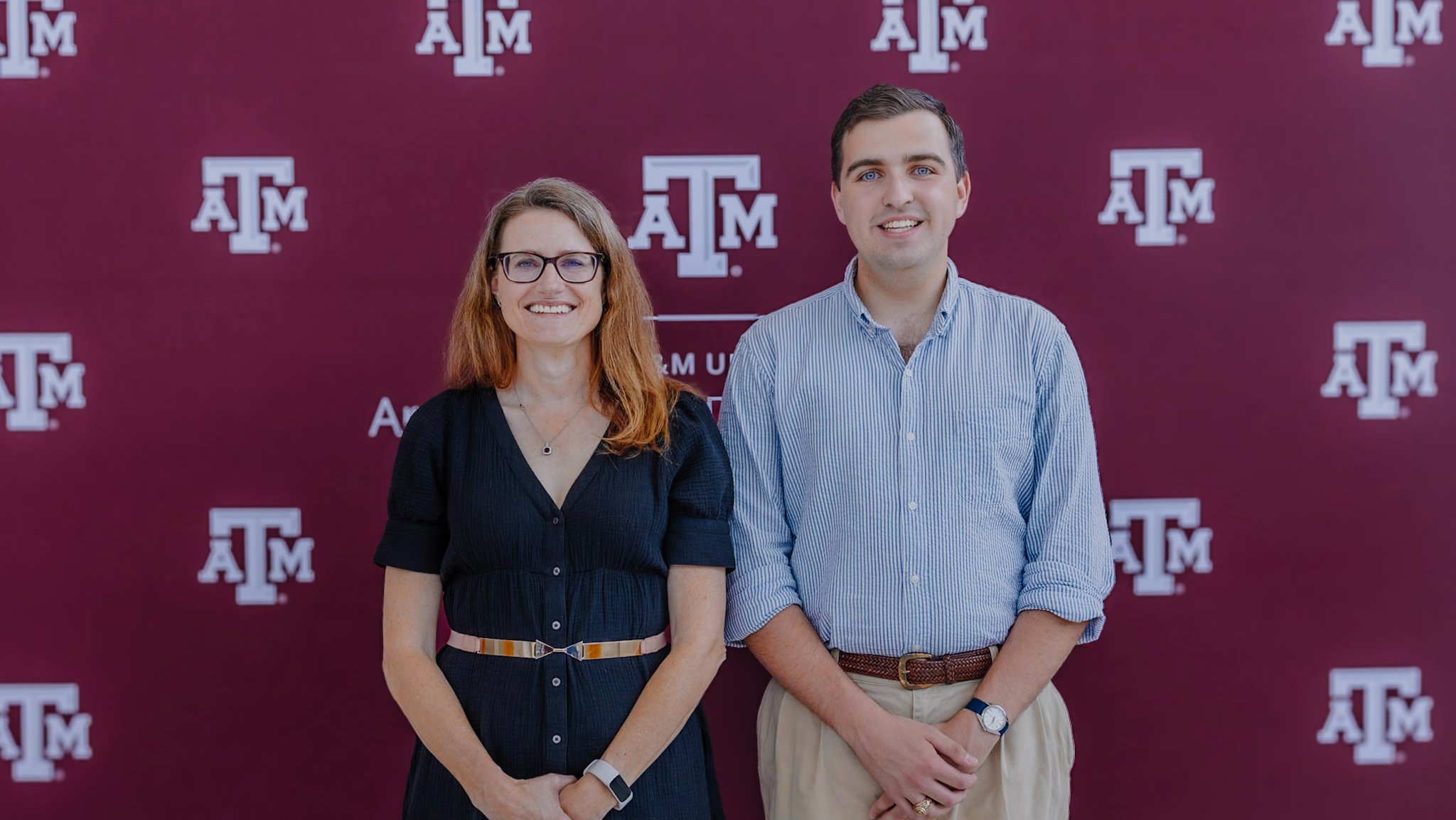
Texas A&M University chemical engineering undergraduate student Coby Scrudder has been named a 2025 Goldwater Scholarship recipient, solidifying his future career in batteries and energy storage.
This national scholarship, awarded by the Barry Goldwater Scholarship and Excellence in Education Foundation, supports undergraduates from across the country who are pursuing research careers in science, engineering and mathematics.
Scrudder plans to pursue a Ph.D. in either materials science or chemical engineering, focusing on electrochemistry, research similar to what he has been working on, he said.
“My goal would be to have a startup coming out of my Ph.D. research,” Scrudder said. “I think that would be a great way to bridge the gap between academic research and industry; working on something that I helped develop, something entirely brand new and bringing out a novelty from the research lab into the world.”
Scrudder learned about this scholarship from his faculty advisor, Dr. Jodie Lutkenhaus, associate dean for research for the Texas A&M College of Engineering and chemical engineering professor.
After almost three years in Lutkenhaus’ lab, Scrudder has centered his research on developing batteries for electric aviation.
Scrudder's projects include designing structural, carbon fiber composite batteries that can serve both as energy storage and as the body panels of cars, planes and satellites.
“Our goal is massless energy storage,” he said. “We're hoping if we can integrate energy storage into the structural components, we can lower the overall weight instead of having separate structural panels and separate energy storage.”
Lutkenhaus believes that although Scrudder’s focus was on the processing of the active material, he has developed expertise in materials manufacturing, electrochemistry and battery design.
Coby worked in our lab as an undergraduate researcher, where he focused on building lithium-ion batteries and organic batteries. He is one of the most brilliant students that I have ever mentored, and I am thrilled that he has earned this recognition.
“Coby worked in our lab as an undergraduate researcher, where he focused on building lithium-ion batteries and organic batteries,” Lutkenhaus said. “He is one of the most brilliant students that I have ever mentored, and I am thrilled that he has earned this recognition.”
Scrudder noted that because traditional energy sources rely heavily on fossil fuels, improving battery safety and increasing their energy density could make them a more viable alternative for clean energy solutions.
Due to a large amount of fossil fuels being used, Scrudder believes that if batteries can be made safer and with a higher energy density, it could enable alternative energy sources.
“I think energy storage is one of the biggest pieces in the energy transition puzzle,” he said. “However, research is necessary to make batteries safer, more reliable, and cheaper to enable them as a practical, wide scale technology.”
In addition to his work in the Lutkenhaus Lab, Coby has also had research internships working on batteries . Over a gap year, Scrudder worked for NASA's Langley Research Center in Hampton, Virginia, working on ultra-high-powered, solid-state batteries for electric aviation.
“We're hoping to double the current energy density of batteries,” Scrudder said. “We move from around 250-watt hours per kilogram, which is what the batteries and Tesla’s are at right now, to upwards of 500 and also to make them safer. One of the issues you've seen is Tesla fires, because of the use of flammable, liquid electrolytes. So, we were hoping to eliminate the liquid electrolyte entirely, so the batteries are inherently non-flammable.”
Receiving this scholarship has placed Scrudder in the mindset to prepare himself for that next stage of pursuing research as a career.
“Being recognized as a Goldwater Scholar will propel Coby toward whatever future he wants,” Lutkenhaus said. “This recognition could land him a place in a top Ph.D. program or industry.”